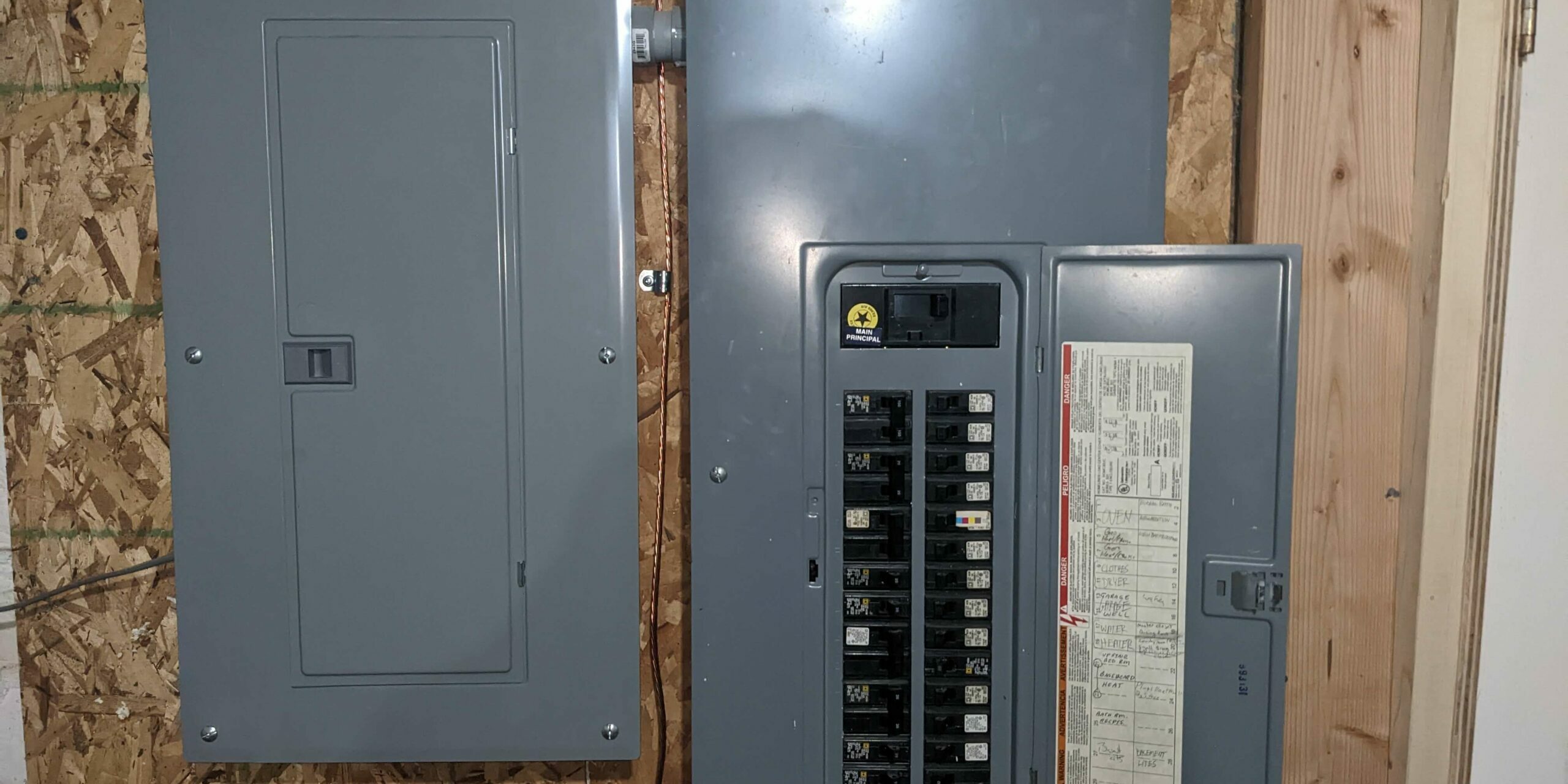
Electrical panels accept energy from different sources such as the utility, fuel generator, or solar electric systems and distribute them throughout a home or business while incorporating overcurrent protection for individual circuits in the building.
If you're installing solar on your home then it's important to work with a professional electrician or solar installation company to ensure everything is up to code and can handle the load of solar energy.
While most conventional home or commercial electrical panels are suitable for accepting and distributing solar energy throughout a home there are new products and developments with this seemingly standard equipment that are advancing the usability and ease of installation for solar on homes and businesses.
Types of Electrical Panels
There are four different types of electrical panels. There is the main breaker panel, fuse boxes, main lug panels and subpanel. As a homeowner, you typically will only run into a main breaker panel in your home but it's not uncommon to have the others.
The main electrical panel in a home is integrated with the utility meter (if grid tied). This is typically where the solar inverter taps into the electrical system on site, via a breaker in the panel.
Another type of electrical panel you may see in a solar setup is a subpanel. In a battery-tied solar installation, this subpanel will house certain circuits or “critical loads” that will remain powered during a utility outage.
Capacity Requirements for Solar Energy
The capacity requirements for electrical panels will depend upon the scale of the solar system that is being installed. Different service types require different inverters and breaker sizes. The electrical demand of the home or building where the solar panel system is installed needs to be considered.
The electrical panel should be able to handle the total electrical demand of the home or building, which includes the electrical demand from appliances, lighting, and other electrical devices. A licensed electrician can help determine the appropriate panel capacity based on the electrical demand.
Electrical Code Requirements for Solar
Electrical code requirements are set by national and local organizations to ensure that electrical systems are designed and installed safely.
Some of the key electrical code requirements for solar panel installations include proper grounding and bonding, use of appropriate wiring and protection devices, and proper labeling and identification of equipment.
Compliance with electrical codes and safety regulations is important for protecting the homeowner, the installation, and the utility company. Non-compliant installations can pose safety hazards, such as electrical shock or fire, and can also result in system failures that can cause damage to the home or building.
Save 30% on Your Installation Costs
You can currently get 30% back as a tax credit when you install a new solar system or expand your current one.
This can save you thousands of dollars on the installation.
Installing Electrical Panels for a Solar System
The first step in installing an electrical panel in a new, or existing, solar system is to first determine the appropriate location for the install. It should be accessible and code compliant. Based on the amperage needed to power the total electrical load, an electrician will choose an electrical panel that has a sufficient amperage capacity to handle the load.
The most common electrical panel sizes include 100-amp, 200-amp, and 400-amp. The panel will then be mounted to the wall or other supporting structure, wired, and integrated with the utility via a meter.
In a solar-integrated system, the inverter serves as the connection point between the electrical system and the solar system. An electrical panel can also be upgraded or scaled up (from 100-amp to 200-amp, for instance) if need be. When installing a solar system, the electrical panel must be large enough to accommodate the electrical demand that a household or business draws.
A fully licensed solar installation company will have the expertise to answer any technical questions about the panel and its role in an installation. Additionally, a company that employs an in-house master electrician is equipped to install and upgrade electrical systems in a safe and code compliant manner.
Peninsula Solar is both fully licensed and fully equipped with an in-house master electrician and multiple journeymen and apprentice electricians. We can help you identify if your electric panel is code compliant and ready for solar. Talk to our team today to book a free solar estimate.